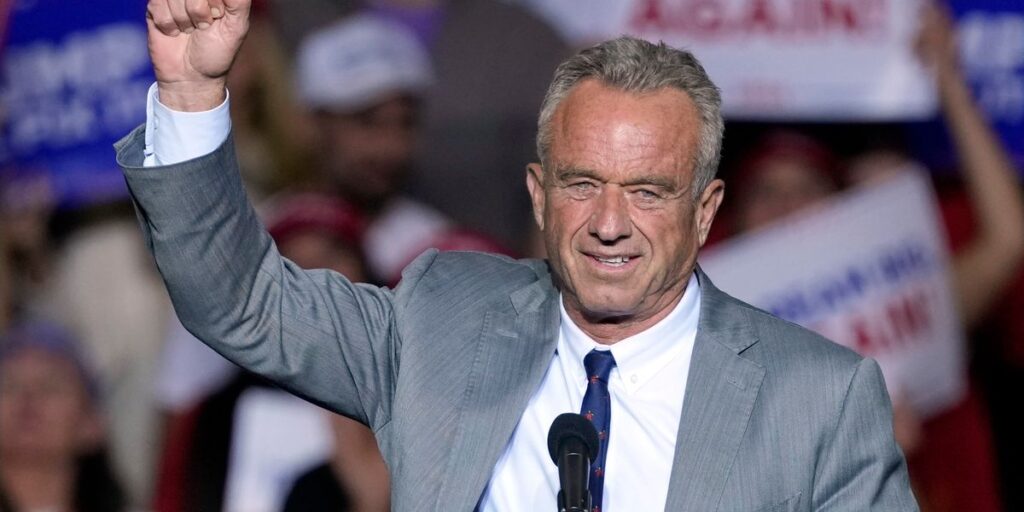Since stepping back from his presidential campaign, Robert F. Kennedy Jr. has emerged as a prominent advocate for Donald Trump, potentially eyeing a significant role within a future Trump administration. His newfound support for Trump comes with bold health policy assertions that may redefine U.S. public health protocols. Kennedy, known for his controversial stance against vaccinations and skepticism about various health regulations, claims that if Trump returns to the White House, his administration will take immediate action to remove fluoride from public water systems. This position is notable given the long-standing recommendations by U.S. health agencies advocating for the controlled addition of fluoride to drinking water to combat tooth decay, which has been deemed safe when used in low concentrations.
Kennedy’s declaration on X, a social media platform he utilized to share his views, criticized fluoride as harmful, linking it to a range of health issues including arthritis, bone fractures, cancer, cognitive decline, neurodevelopmental issues, and thyroid disorders. His stance challenges decades of scientific endorsement for water fluoridation, raising alarms among dental and health professionals concerned about the potential public health ramifications. The Trump campaign has yet to comment on Kennedy’s specific claims. Such strategic positioning, especially on a contentious health topic, underscores Kennedy’s willingness to leverage his influence in advocating for a radical re-examination of public health norms.
Throughout his recent appearances, Trump has made remarks suggesting he plans to grant Kennedy authority over various health-focused agencies should he regain the presidency. During events in Nevada and Madison Square Garden, Trump hinted at significant responsibilities for Kennedy, saying he would allow him to have extensive control over health policies and initiatives. This includes substantial oversight of agencies like the Centers for Disease Control and Prevention (CDC) and the Department of Health and Human Services (HHS), which would grant Kennedy substantial power to reshape health guidelines and policies across the nation.
Kennedy has described how Trump would empower him to influence health-related matters extensively, including priorities on agricultural health by emphasizing a reduction in reliance on seed oils and supporting less pesticide-intensive farming practices. His approach highlights a broader vision for a comprehensive transformation of what he perceives as detrimental health practices in the U.S. food system, potentially aligning agricultural policy with environmental sustainability and public health safety. This dual focus on health and environmental concerns reflects Kennedy’s longstanding advocacy for green health initiatives and could significantly impact American dietary standards.
While both Kennedy and Trump are working to redefine the norms of health policy in the U.S., their partnership raises questions about the implications of such drastic changes. Critics may see their combined rhetoric as a movement towards deregulation and a dismissal of established public health initiatives. Observers within the medical and scientific community express concerns that embracing unfounded claims could lead to public confusion, a decline in trust in scientific consensus, and ultimately detrimental effects on public health. The potential implications for childhood dental health and broader public health outcomes from the proposed withdrawal of fluoridation remain a critical concern for scientists and practitioners alike.
As the political landscape develops, Kennedy’s ascent as a prominent figure within Trump’s political sphere signals a possible pivot towards more radical health policies that may defy conventional medical guidance. The upcoming electoral cycle could thus serve as a critical juncture, as Kennedy’s and Trump’s health agendas come under scrutiny both by skeptics and supporters. With mentions of Kennedy’s potential roles at Trump’s rallies showcasing their political camaraderie, the intersection of public health and politics is poised to take center stage, inviting a parade of discussions regarding the scientific backing and societal impacts of their proposed health policies.

